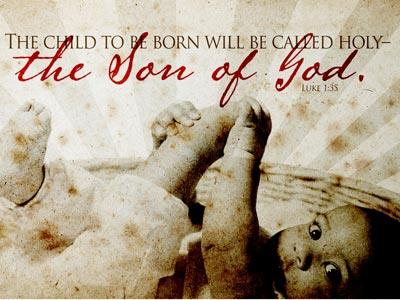-
Infant Baptism Series
Contributed by D Marion Clark on Nov 28, 2017 (message contributor)
Summary: An exposition of the doctrine and practice of infant baptism.
Introduction
We’ve come to the second of the two-part sermons on baptism. I trust that most everyone who heard last Sunday’s message on the meaning of baptism would not have had difficulty with what they heard. Baptism is a sign and seal of the gospel. The four primary elements of the gospel signified are the washing away of sin by Christ’s blood, the union we have with Christ, being identified under God’s covenant, and the anointing of the Holy Spirit. I had affirmed that baptism does not save an individual but only signifies the inner baptism of the Holy Spirit that actually saves. One other point I made was that baptism served as the opportunity for the individual to publicly profess faith in Jesus Christ. You may recall the image I gave of Jesus drawing a line in the sand and calling his followers to cross over.
All the more reason then, I should have left many of you baffled particularly given the individuals baptized this morning. We did not baptize anyone capable of professing faith, and most of them couldn’t crawl across a line. How can we square the meaning of baptism with the practice of baptizing the very individuals incapable of professing faith nor of demonstrating that the inner baptism of the Holy Spirit has taken place? To answer that question, we need to explore more fully as I promised the concept of being identified under God’s covenant.
Text
It all goes back to Abraham and the story in Genesis 17. Follow along with me:
When Abram was ninety-nine years old the LORD appeared to Abram and said to him, “I am God Almighty; walk before me, and be blameless, 2 that I may make my covenant between me and you, and may multiply you greatly.” 3 Then Abram fell on his face. And God said to him, 4 “Behold, my covenant is with you, and you shall be the father of a multitude of nations. 5 No longer shall your name be called Abram, but your name shall be Abraham, for I have made you the father of a multitude of nations. 6 I will make you exceedingly fruitful, and I will make you into nations, and kings shall come from you. 7 And I will establish my covenant between me and you and your offspring after you throughout their generations for an everlasting covenant, to be God to you and to your offspring after you. 8 And I will give to you and to your offspring after you the land of your sojournings, all the land of Canaan, for an everlasting possession, and I will be their God.”
God made with Abraham a covenant. A covenant is a binding agreement that establishes a relationship between two or more persons or parties. God made a binding agreement with Abram that he would be the God of Abram and his descendants and they in turn his people. Abram would have many descendants, indeed, so many that Abram’s name would be changed from Abram (which means “exalted father”) to Abraham (“father of a multitude”).
Note who all he is to be a father to; this is very important. Both verses 4 and 5 say that he is to be the father of a multitude of nations. In verse 6 God says that he will make Abraham into nations. Again, this is very important because God is making clear that the covenant he is making with Abraham will be extended to other peoples, and not just to the one nation that will come from his bloodline.
Besides lots of people, Abraham gets land as well. It is the land of Canaan that God originally called Abraham to leave his home around the Euphrates to come live in. Even so, what God intends eventually to happen is for the whole earth to be Abraham’s inheritance. The multitude of nations are not going to squeeze into the little land of Canaan. The covenant blessing begins there and then spreads throughout the earth.
What we are speaking of here is the kingdom of God. God is establishing his kingdom with Abraham. It will extend through him to his blood descendants. They will eventually be made into a nation through Moses, and as such are to become a kingdom of priests and a holy nation (Exodus 19:6). The Law is given to them for that very purpose, to distinguish them as a people belonging to God. What then? Eventually, from that bloodline of Abraham the Redeemer will come who raises the covenant to a new level. He fulfills all the conditions of the covenant, even taking the punishment due the people for their failure to keep it, and then extends it beyond Abraham’s bloodline to his spiritual-line.
What do I mean by that? I mean that we who believe in Jesus Christ to be our Redeemer are also considered the descendants of Abraham, and that covenant made with him now applies to all those – Jew and Gentile alike – who believe in Jesus. The covenant made with Abraham, and thus to the Jews his descendants, is the same covenant that now includes us. Let’s go on with our text.

 Sermon Central
Sermon Central



